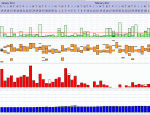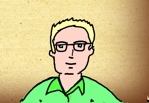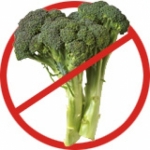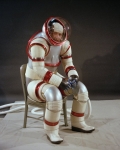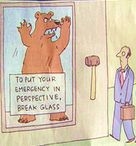Post
by zoocrewphoto » Tue Aug 07, 2012 3:14 pm
As somebody who has been sleep deprived for multiple reasons for many years, I can tell you have lack of sleep can affect visual estimation of distances. And no, I do not drive. I don't even have a license. I have a phobia of driving.
Even with effective cpap treatment, I have some short nights due to being a night owl and having to get up earlier than i would like. I may feel okay. But I have found that I turn into a clutz. I will whack my hands on corners of desks or anything that is along my route. This does not happen most days, just when I am short on sleep. And I will do it again and again. Also, I will whack my shoulder on a door frame as I go through. At work, we have places where the door frame is a good 5 feet wide, and I will stick whack my shoulder. I don't see it coming. I know where I am, and I can fit through easily with a couple feet on each side. But when I am tired, I have a tendency to not clear corners and edges. I just seem to list off to the side of the walkway and hit stuff.
I suspect this is similar to what tired drivers do. They aren't always falling asleep at a stop light. They just start straying off to one side of a lane until they run off the road or stray into a lane and hit another car. My nephew flipped a semi truck a few years ago because he was running late, and thought his nap was long enough. He felt safe to drive, but he was young, didn't know his limits, and drove when he wasn't rested. He was okay, and fortunately, he did not hurt anybody else. But he drove into the ditch between the directions on the freeway, totalled a semi truck and its cargo. He lost his job and the ability to get a driving job for 3 years. He works for a drug store while he pays off his driving school loan.
All it takes is one sleepy moment. A dog gives you somebody to talk to, which is nice to keep away monotony on a long drive. But the dog can't possibly keep a sleepy person alert. Officially awake, *maybe*. But alert? No.
And the dog won't help the sleep apnea at night, and that is a cumulative problem. Back when I was in college, I had a neurological problem that I did not realize was serious. I was forgetting normal words, several times a night. I was routinely getting 2-4 hours a night as I could not fall asleep before 2am, but I had to get up at 5 or 6am to get to class. My classes were only offered in the morning, so I was stuck with a horrible schedule. My coworkers would laugh with me as I forgot the words and came up with creative descriptions. The microwave is that thing over there that cooks stuff. (This would be in response to, where is the XX?). In the thing over there that cooks stuff. When I quit college, the word problem stopped. Now, it only comes back if I have several days in a row with very bad or little sleep. And I recognize it as a sign that I need to take action and catch up on a sleep. Back in college, I didn't see it as a serious problem, and considered it a joke.
Part of what makes these problems so serious is that the person experiencing the problem, just like a drunk person, cannot recognize how bad the situation is. So, while they may think they are making a rational decision, they simply cannot. And it feels like being picked on when other people point this out. It is kinda like the phrase "young and dumb" It is not meant as an insult, but young people assume it is as insult and incorrect. Older people know that it just means that when we were young and inexperienced, we just didn't know better. And sometimes the only solution is to get older (and more experienced).
Who would have thought it would be this challenging to sleep and breathe at the same time?









